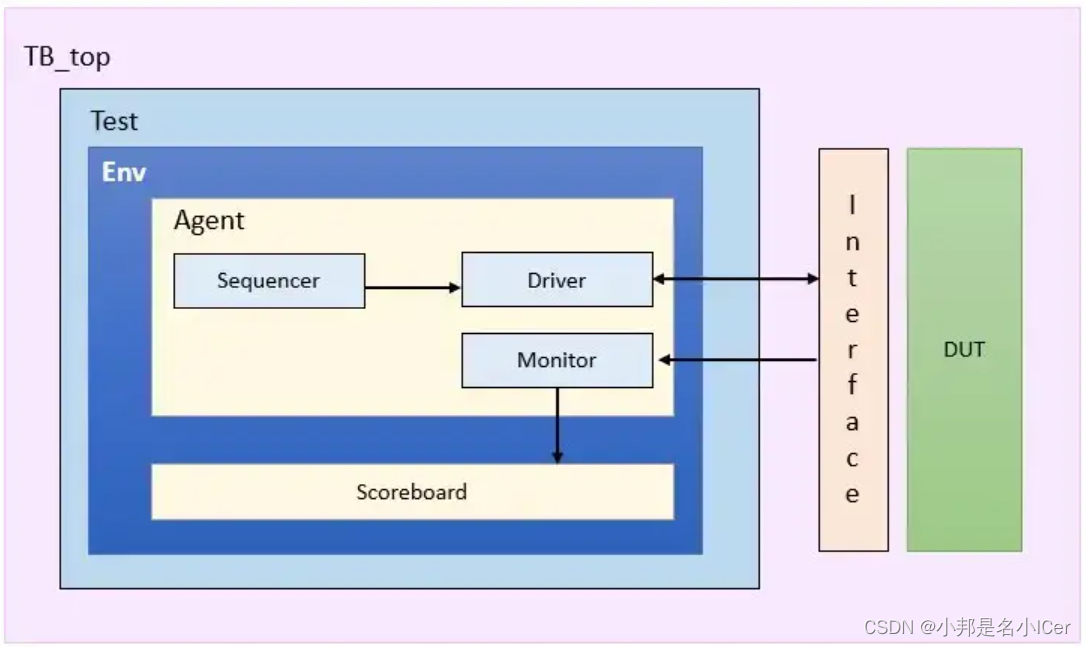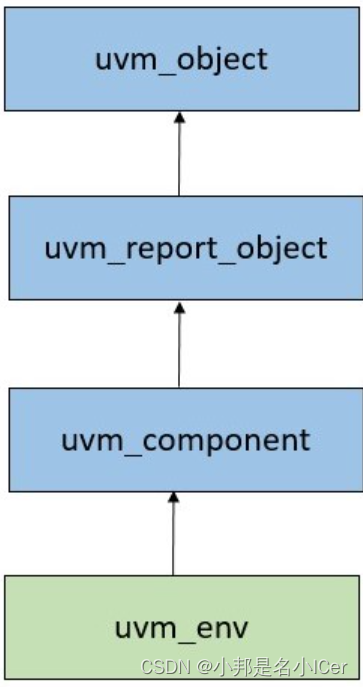10. UVM Environment
发布时间:2023年12月28日
环境为agents, scoreboards和其他验证组件(包括有助于在 SoC 级别重用块级环境组件的其他环境类)提供良好的层次结构和容器。用户定义的 env 类必须从 uvm_env 类扩展。

10.1 uvm_env class hierarchy

类声明:
virtual class uvm_env extends uvm_component;?用户定义的env类声明:
class <env_name> extends uvm_env;10.2 How to create a UVM env?
steps:
- 创建一个从 uvm_env 扩展的用户定义的 env 类,并将其注册到工厂中。
- 在build_phase中,实例化agent、其他验证组件,并使用配置数据库来set/get配置变量。
- 在connect_phase中,使用TLM接口连接monitor,scoreboard和其他功能覆盖组件。
10.3 UVM Environment example
class env extends uvm_env;
`uvm_component_utils(env)
agent agt;
scoreboard sb;
func_cov fcov;
function new(string name = "env", uvm_component parent = null);
super.new(name, parent);
endfunction
function void build_phase(uvm_phase phase);
super.build_phase(phase);
agt = agent::type_id::create("agt", this);
sb = scoreboard::type_id::create("sb", this);
fcov = func_cov::type_id::create("fcov", this);
endfunction
function void connect_phase(uvm_phase phase);
// connect agent and scoreboard using TLM interface
// Ex. agt.mon.item_collect_port.connect(sb.item_collect_export);
endfunction
endclass10.4 How to instantiate multiple env in top_env?
class top_env extends uvm_env;
env env_o[3];
`uvm_component_utils(top_env)
function new(string name = "top_env", uvm_component parent = null);
super.new(name, parent);
endfunction
function void build_phase(uvm_phase phase);
super.build_phase(phase);
foreach(env_o[i])
env_o[i] = env::type_id::create("$sformatf("env_o_%0d", i)", this);
endfunction
...
endclass?
文章来源:https://blog.csdn.net/Bonnie_89/article/details/135248420
本文来自互联网用户投稿,该文观点仅代表作者本人,不代表本站立场。本站仅提供信息存储空间服务,不拥有所有权,不承担相关法律责任。 如若内容造成侵权/违法违规/事实不符,请联系我的编程经验分享网邮箱:chenni525@qq.com进行投诉反馈,一经查实,立即删除!
本文来自互联网用户投稿,该文观点仅代表作者本人,不代表本站立场。本站仅提供信息存储空间服务,不拥有所有权,不承担相关法律责任。 如若内容造成侵权/违法违规/事实不符,请联系我的编程经验分享网邮箱:chenni525@qq.com进行投诉反馈,一经查实,立即删除!